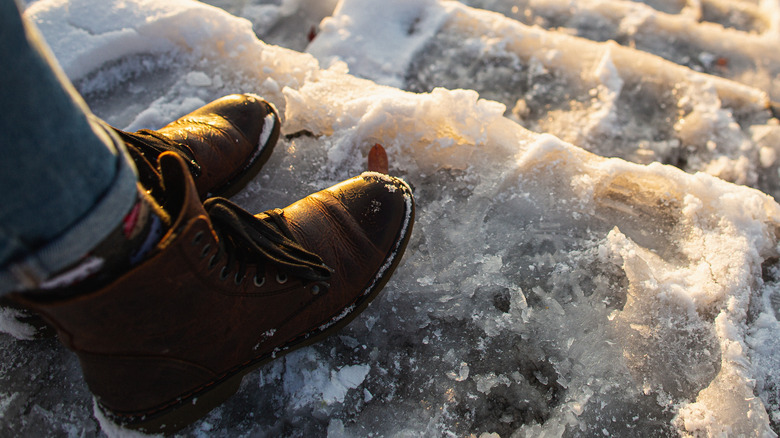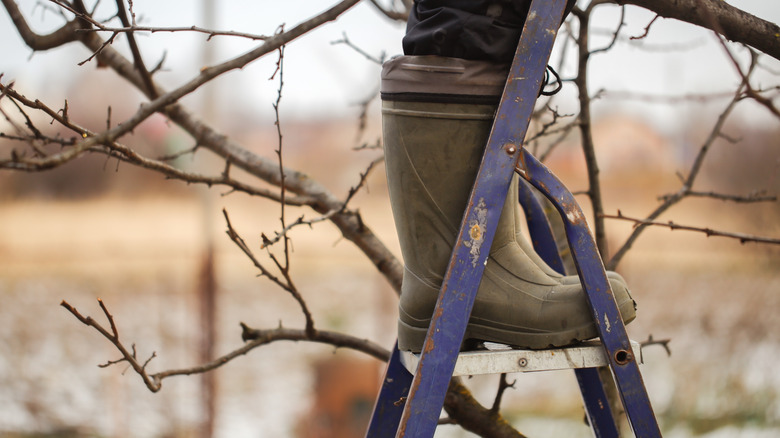How To Protect Your New Boots From Winter Weather Damage
Fall and winter's trendiest boots are always the cutest, but are they best suited to surviving the cold season? Winter brings with it lots of snow and lots of salt used on roads and sidewalks to keep them clear of the snow, but both snow and salt — nonetheless the combined harshness of the two — can really damage your boots (and really any of your shoes). A lot of boots, like Uggs, are also expensive, so it feels even worse when they get damaged.
According to Esquire, road salt is bad for boots for two central reasons. The salt, especially when mixed with snow and slush, stains your boots. Meanwhile, salt, a drying agent, can completely ruin leather because of this property. Non-leather shoes aren't as affected by the second reason, but it's a serious reason nonetheless. However, Esquire is quick to note that, while shoes should always be protected well to begin with, it's possible to protect them and even bring them back to life if they've been harmed.
Here's how to protect them.
You can modify your shoes or simply invest in protective spray
Protecting your boots in winter doesn't have to be a headache. Instead, there are a few easy things you can do, as well as a few more complex things, that can keep your boots safe year after year. According to Reviewed, the simplest way to protect your boots in wintertime is to apply an even coat of a protective spray to them. Each brand of spray lasts a different amount of time, but you generally shouldn't have to spray them more than a few times throughout the winter each year. Plus, these sprays are good on all shoes, so this is an affordable option for anyone with tons of boots.
Always remember to let your boots, especially leather ones, to dry naturally when wet from snow or slush as any heat can severely damage your shoes (via Chicago Magazine). At the same time, if you've gotten any salt stains on your boots, a mixture of white vinegar and water can help scrub them right off, per Insider. Moreover, a mixture of baking soda and water can help neutralize scuff marks.
Insider also recommends altering your shoes if you live in a cold climate where snow and salt will be very common, though these often involve seeking out cobblers which can get expensive. Still, they recommend getting rubber taps installed into your boots' heels and installing half soles for more protection. With these tips in mind, go forth and wear the cutest boots all season long (and don't forget to avoid some of the worst fabrics for winter).

